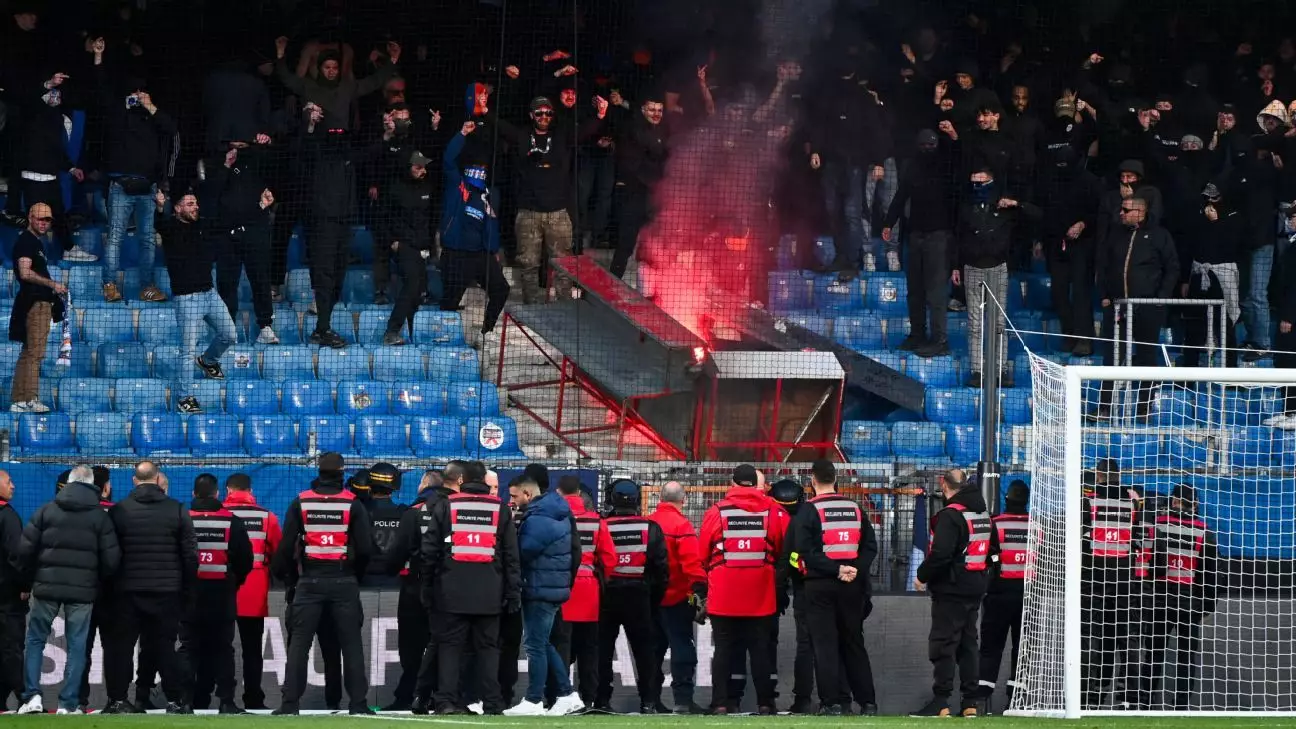The recent Ligue 1 match that was abruptly abandoned due to a fire in Montpellier’s stadium unveils a troubling pattern in French football that transcends the on-field rivalries. When the match against 10-time champions Saint-Etienne was interrupted in the 63rd minute, it was not just a rare spectacle; it was a manifestation of the underlying tensions simmering among supporters. With Montpellier trailing 2-0 to an inspired Saint-Etienne side, tempers flared among the home crowd, leading to the reckless flinging of flares. This dangerous behavior, culminating in a fire, raises alarming questions about fan engagement and the overall security measures in place at sporting events.
Fans in Turmoil: A Reflection of Despair
The decision to abandon the game, exacerbated by black smoke billowing from the stands, serves as a stark reminder that sports events are not merely games for many; they are emotional battlegrounds. Montpellier’s desperate situation in the league, positioned uncomfortably at 18th place, likely fueled the frustration among fans, many of whom took out their anger on stadium property. Such acts of vandalism are not isolated but instead signal an increasing unrest among supporters feeling disconnected from their teams and institutions.
Moreover, Saint-Etienne’s fans, previously banned from attending away matches due to violence, illustrate a toxic rivalry that has far outgrown simple football disputes. The palpable tension between these two teams underscores a broader societal plight wherein passionate support morphs into aggression.
Government vs. Fans: A Complex Narrative
What complicates this situation is the French government’s recent initiative aimed at disbanding organized supporter groups like the Magic Fans and Green Angels. These fanatics, born out of a rich football culture, now find themselves at odds with policies they deem politically charged and ineffective in addressing the hooliganism they are often accused of. Their voices echo frustration, highlighting a divide where the government’s preventive measures seem to overshadow the historical passion fans have for their clubs.
The clear juxtaposition between government actions and supporter sentiments hints at deeper issues within society—one that necessitates nuanced dialogue rather than decisive crackdowns that may alienate loyal fanbases. While it’s essential to ensure safety within stadiums, collectively punishing fan groups risks exacerbating the very culture of violence it aims to extinguish.
Historical Context: Once Glory, Now Division
Saint-Etienne’s legacy as a powerhouse of French football casts a long shadow over its current struggles. In the 1960s and ’70s, the club thrived; however, today it finds itself grappling with more than just footballing woes. The clashes between opposing fans remind us that for clubs rich in history, every match day is not just about three points. It is a reflection of socio-economic realities, cultural identities, and the connection—or disconnection—between fans and authorities.
The implications of the recent match abandonment extend beyond immediate penalties for Montpellier; it forces stakeholders to examine how to reconcile the fervent passion of supporters with the safety and decorum required at sporting events. Until a constructive approach is forged in addressing both the root causes of fan violence and the voices of the discontented, the beautiful game in France risks becoming marred by chaotic chapters rather than celebrated for its historic moments.

